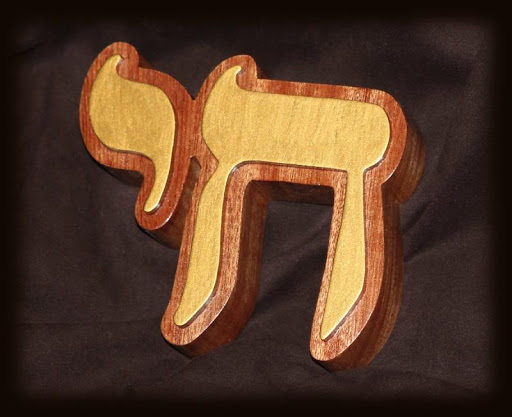This week’s Torah portion begins with a familiar reminder of the Biblical understanding of faith and practice, “If you follow My laws and faithfully observe My commandments, I will give your rains in their time, the land will yield its produce, and the tree of the field will give forth its fruit.” (Lev. 26:3-4) Do the work, believe in God, and good will come your way–this a belief that both elegant in its simplicity and is also profoundly problematic. In a complicated world filled with the intricacies of relationships and challenges of day to day life, we know that this simple equation does not always come true.
The message of this teaching might lie a bit below the surface. Why does the Torah mention here both laws and commandments? Isn’t this redundant? In the Hebrew, we read two separate words, hukim and mishpatim. Our tradition teaches us that while mishpatim are laws that have a rational explanation, hukim are laws that do not have any logical reason, such as kashrut or the sacrifices. While these laws might bring us to a higher spiritual place, we are told that we should follow them simply because they are commanded by God. We should follow them not for the desire of a reward, but instead out of simple faith.
Yet a look into the language of this text tells us a little more. The rabbis remind us that the word hok, comes from the same root as “engraved”. While following any law or practicing any ritual can and should have meaning for us, following a law out of faith instead of an expectation of purpose or a certain outcome is understood to be a much more permanent and impactful experience. Rabbi Zalman Schachter-Shalomi explains it well:
In order to transmit an engraved message, the medium of transmission must give up something of itself: this is what the chipping-out process of engraving entails. And the medium of transmission here is us. More than the other types of mitzvot, the hukim ask for a higher level of surrender to a will that is not our own…[and] I have found that they bring me closer to the realization of God.
This image of engraving is a fascinating one. So many of us see the words of the Torah as ink on parchment, a truth that can be read and then rolled up and put away until needed. But faith, both the deepest of religious faith and the simple faith that each of our days will be a good one, is a faith that needs a little more stability and sometimes takes a bit more work. It is the letters carved line by line into rock. The faith which comes from this holy work of engraving is a faith that needs us to live a life that sometimes makes sense, and other times is filled with surprises and challenges that hit us in the core of our souls. It is not a faith that means we will have easy lives, any more than it means we will also know all the answers.
This faith asks us not to simply look to the heavens for truth or rewards, but needs us to do the hard work and to chisel away bit by bit to make our own mark on the world. It is more than just faith in God. It is faith in each other and faith in the power of the work that each of us can do to create wholeness and healing. Rabbi Jack Reimer wrote some very powerful words on this theme in his poem, social justice:
We cannot merely pray to you, O God, to end war;
For we know that You have made the world in a way
That people must find their own paths to peace.
Within themselves and with their neighbor.
We cannot merely pray to You, O God, to end starvation;
For You have already given us the resources
With which to feed the entire world,
If we would only use them wisely.
We cannot merely pray to You, O God, to root out prejudice;
For You have already given us eyes with which to see the good in all people,
If we would only use them rightly.
We cannot merely pray to You, O God, to end despair,
For You have already given us the power
To clear away slums and to give hope,
If we would only use our power justly.
We cannot merely pray to You, O God, to end disease;
For You have already given us great minds
With which to search out cures and healing,
If we would only use them constructively.
Therefore we pray to You instead, O God,
For strength, determination and will power,
To do instead of just pray,
To become instead of merely to wish.
Let us all work to bring more healing into this world, and do what we can to move through these challenging times with the support of each other.
